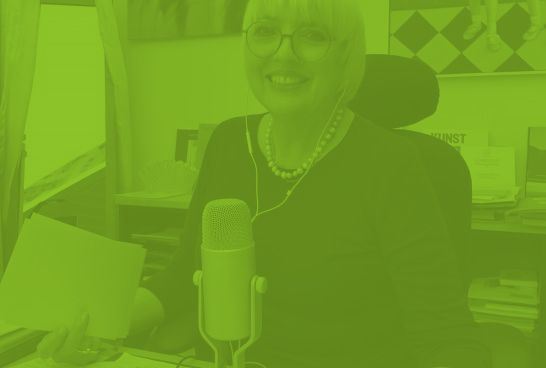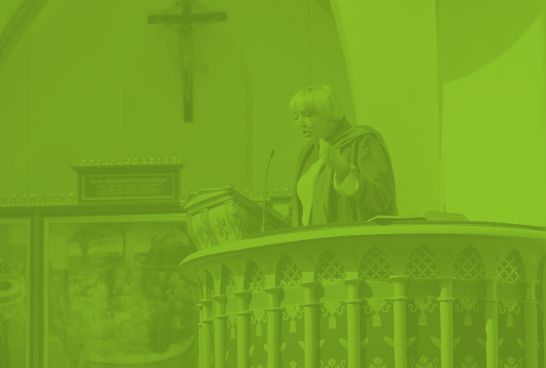Zum Abschluss der ersten Verhandlungsrunde im Prozess gegen 16 Vertreter*innen der türkischen Zivilgesellschaft wegen der angeblichen Organisation der Gezi-Proteste erklärt Claudia Roth, Vizepräsidentin des Deutschen Bundestages:
Ich habe als Beobachterin am Prozessauftakt gegen 16 Akteurinnen und Akteure der türkischen Zivilgesellschaft am Montag, den 24. Juni 2019, teilgenommen. Der Prozess im Gerichtssaal des Istanbuler Hochsicherheitsgefängnisses Silivri wurde am Dienstag, den 25. Juni 2019, ohne Ergebnis vertagt.
In der Anklageschrift, die erst nach über 500 Tagen rechtswidriger und allen internationalen Standards widersprechender Untersuchungshaft des Haupangeklagten Osman Kavala vorgelegt wurde, wirft die Staatsanwaltschaft ihm und 15 weiteren Beschuldigten die Organisation und Finanzierung der Gezi-Proteste von 2013 vor – und fordert insgesamt über 47.000 Jahre Gefängnis, ohne Aussicht auf Begnadigung.Die Anklageschrift ist ein Sammelsurium aus Behauptungen, Unterstellungen und konstruierten Verbindungen. Die Zusammenarbeit und der Kontakt der Beschuldigten zu deutschen zivilgesellschaftlichen Organisationen und der Bundesregierung werden de facto als Straftatbestand gewertet. Auch wird die Finanzierung unterschiedlicher Projekte aus deutschen und europäischen Mitteln zum vermeintlichen Hinweis auf strafbewährtes Handeln umgedeutet. Besonders absurd daran ist, dass die türkische Regierung mit den genannten Stellen selbst offizielle Kontakte pflegt und Gelder von den gleichen Institutionen bezieht. Alle in der Türkei getätigten Unterstützungsleistungen dieser Geldgeber unterliegen der strikten und transparenten Kontrolle des türkischen Innenministeriums.
Nicht zuletzt als Gründungsmitglied des Europarats, als Mitgliedsstaat der europäischen Menschenrechtskonvention und als Beitrittskandidat der Europäischen Union ist die Türkei rechtlichen Verpflichtungen unterworfen, die einzuhalten sind. Dazu gehört das Recht auf ein faires Verfahren und die Unschuldsvermutung gegenüber Angeklagten. Beides sind Punkte, denen die lange Untersuchungshaft und der Mangel an Beweisen zuwiderlaufen. In keinem einzigen Punkt entspricht das aktuelle Verfahren internationalen Standards.
Offensichtlich konstruierte Vorwürfe sollen genutzt werden, um bürgerrechtliches Engagement zu kriminalisieren und diejenigen zu diskreditieren, die ihre demokratischen Rechte wahrnehmen und für eine demokratische Zukunft der Türkei eintreten. Das ist Grund zu tiefer Besorgnis und ein Angriff auf den verbleibenden Rest an Rechtsstaatlichkeit in der Türkei. Ich fordere die türkische Regierung auf, diese Farce zu beenden, endlich zu den Regeln des internationalen Rechts zurückzukehren und entsprechend die Beklagten unverzüglich und bedingungslos freizulassen.
Ich begrüße die Entlassung von Yigit Aksakoglu nach fast sieben Monaten in Untersuchungshaft. Umso unverständlicher ist es, dass Osman Kavala auch nach zwanzig Monaten inhaftiert bleibt, obwohl es weiterhin keinerlei Beweise für die gegen ihn erhobenen Vorwürfe gibt.
—
After the conclusion of the first round of negotiations in the trial against 16 Turkish civil-society activists for allegedly organising the Gezi protests, Vice-President of the German Bundestag Claudia Roth issues the following statement:
I attended the start of the trial against 16 Turkish civil-society activists on Monday, 24 June 2019, as an observer. The trial in the courtroom of the Silivri maximum-security prison in Istanbul was adjourned on Tuesday, 25 June 2019, without a verdict.
In the indictment, which was only submitted after the main defendant Osman Kavala had been detained illegally and against all international standards for over 500 days, the public prosecution office accuses Kavala and 15 other defendants of organising and funding the Gezi protests in 2013 – and calls for a total of over 47,000 years in prison, with no chance of reprieve.
The indictment is a mingle-mangle of allegations, false claims and fabricated connections. Cooperation and contact of the defendants with German civil-society organisations and the Federal Government are re-defined to de facto constitute an offence. The financing of various projects through German and European funds is re-interpreted as a supposed indication of criminal activity. This is even more absurd as the Turkish government itself is officially in contact with these organisations, and receives funds from the self-same institutions. All support services carried out by these sponsors in Turkey are subject to strict and transparent scrutiny by the Turkish Ministry of the Interior.
Not least in its capacity as a founding member of the Council of Europe, as a party to the European Convention on Human Rights and as a candidate for accession to the European Union has Turkey made legal commitments which must be adhered to. These include the right to a fair trial and presumption of innocence towards defendants. The long period of detention and the lack of evidence run contrary to both of these principles. The current proceedings do not meet international standards in any respect.
Very clearly, fabricated accusations are being used to criminalise civil-rights activism and to discredit those who use their democratic rights to stand up for a democratic future for Turkey. This gives grounds for great concern and is an attack on what remains of the rule of law in Turkey. I call upon the Turkish government to end this farce, to return at last to the rules of international law, and thus to release the accused immediately and unconditionally.
I welcome the release of Yigit Aksakoglu after almost seven months of detention. It is all the more incomprehensible, however, that Osman Kavala remains in prison after almost twenty months, despite the ongoing lack of any evidence for the charges brought against him.

